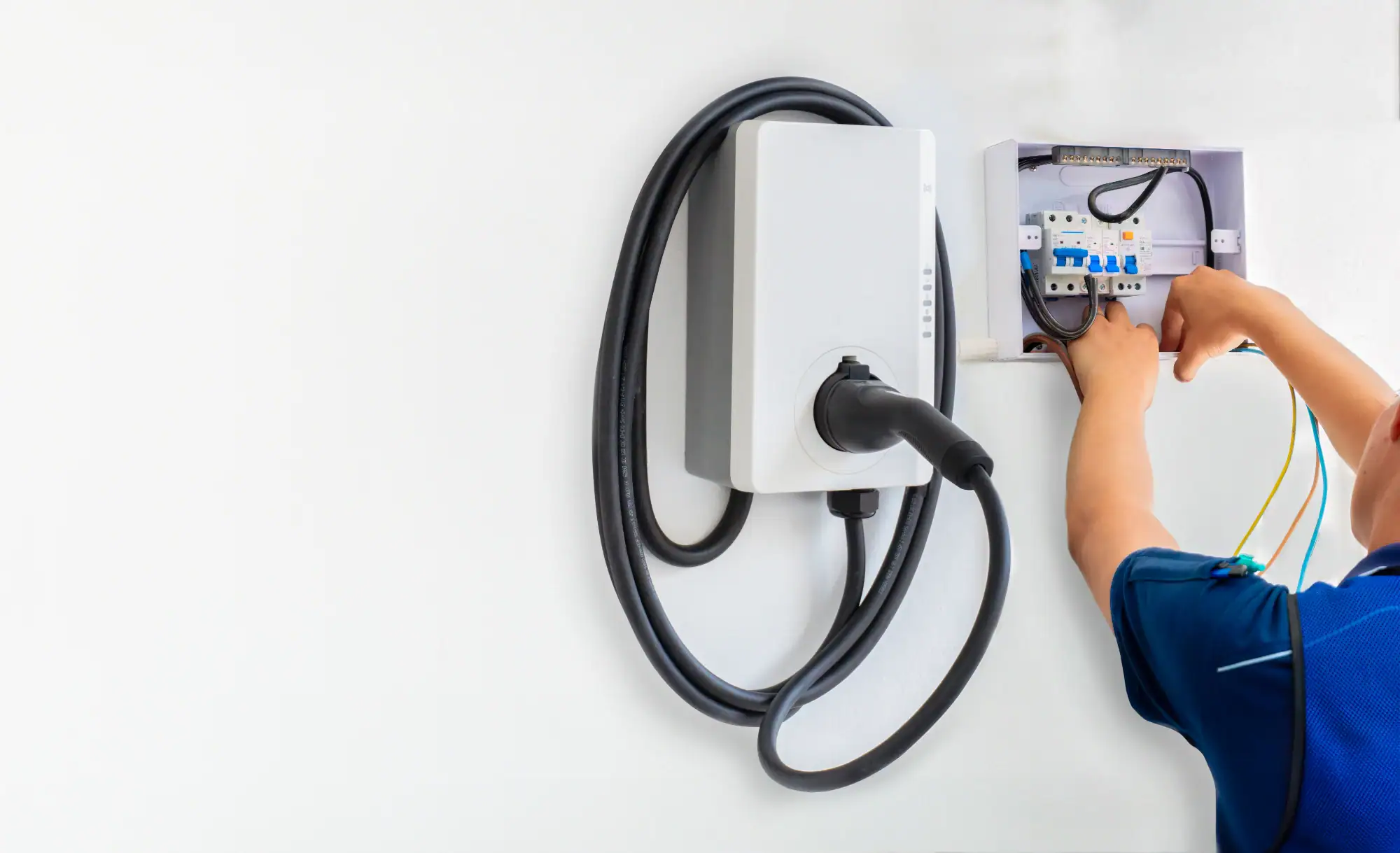Stop worrying about finding public charging stations or damaging your electrical system with improper installation in Wheaton.
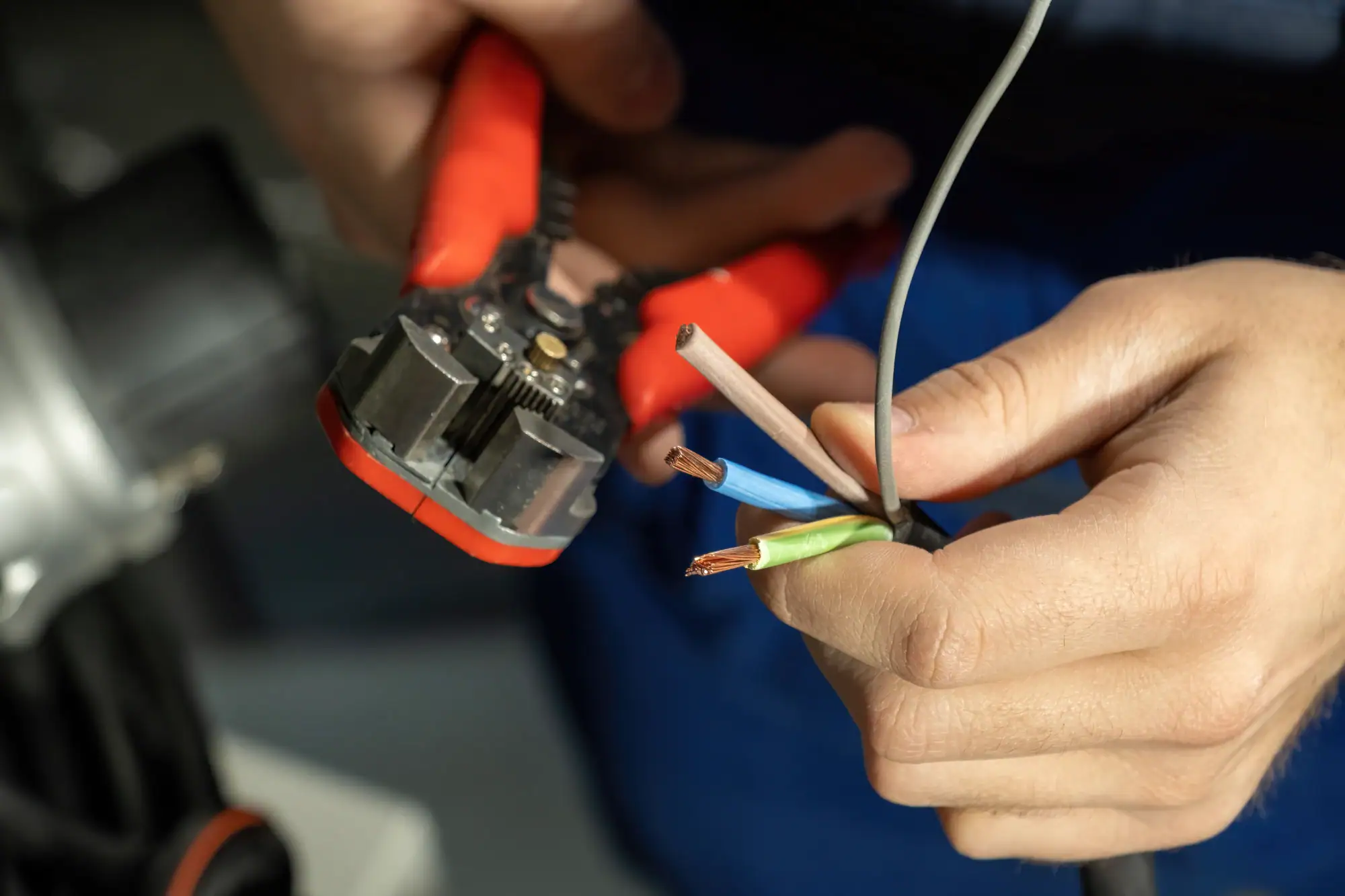
Hear from Our Customers
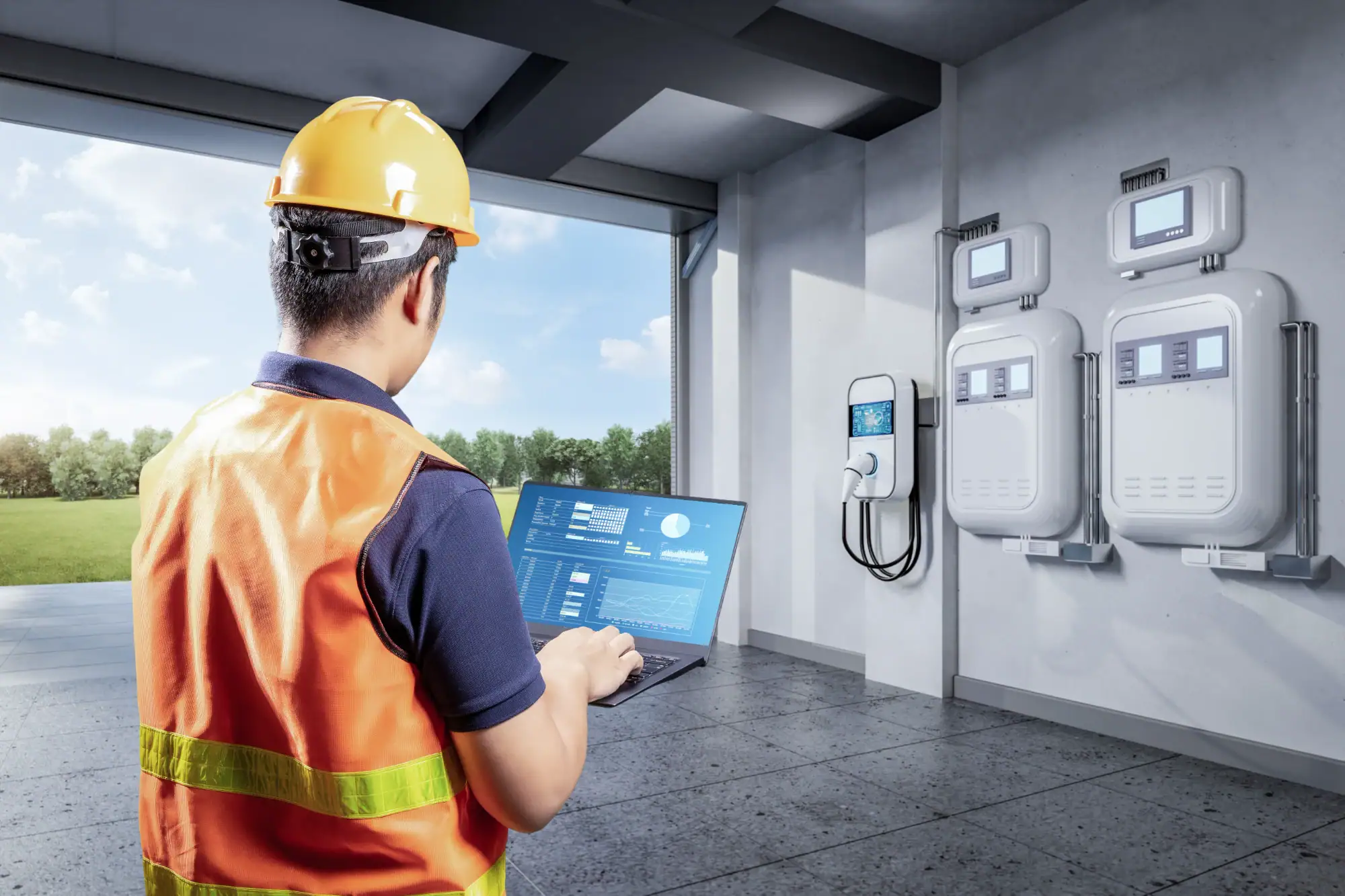
Your electric vehicle manufacturer recommends overnight charging at home. That means no more planning trips around charging stops or sitting in parking lots waiting for your battery to fill up.
When you have a properly installed home EV charger, you plug in when you get home and wake up ready for whatever the day brings. No range anxiety. No hunting for available charging stations during your commute.
The right installation also protects your investment. Your EV and your home’s electrical system stay safe when the work is done correctly by licensed professionals who understand both local codes and manufacturer requirements.
Jimco Electric has been handling residential electrical emergencies and installations in the Wheaton area for over two decades. We’re licensed, bonded, and insured electricians who specialize in the kind of critical electrical work that keeps homes safe and functional.
When Wheaton homeowners face flickering lights, power outages, burning smells, or need panel upgrades, they call us. That same expertise in emergency electrical repair translates directly to EV charger installations that meet Illinois Commerce Commission certification requirements.
We understand that most of our customers are busy homeowners who need electrical problems solved quickly and correctly the first time. That’s why we offer discounts for military, first responders, seniors, teachers, new customers, and students.
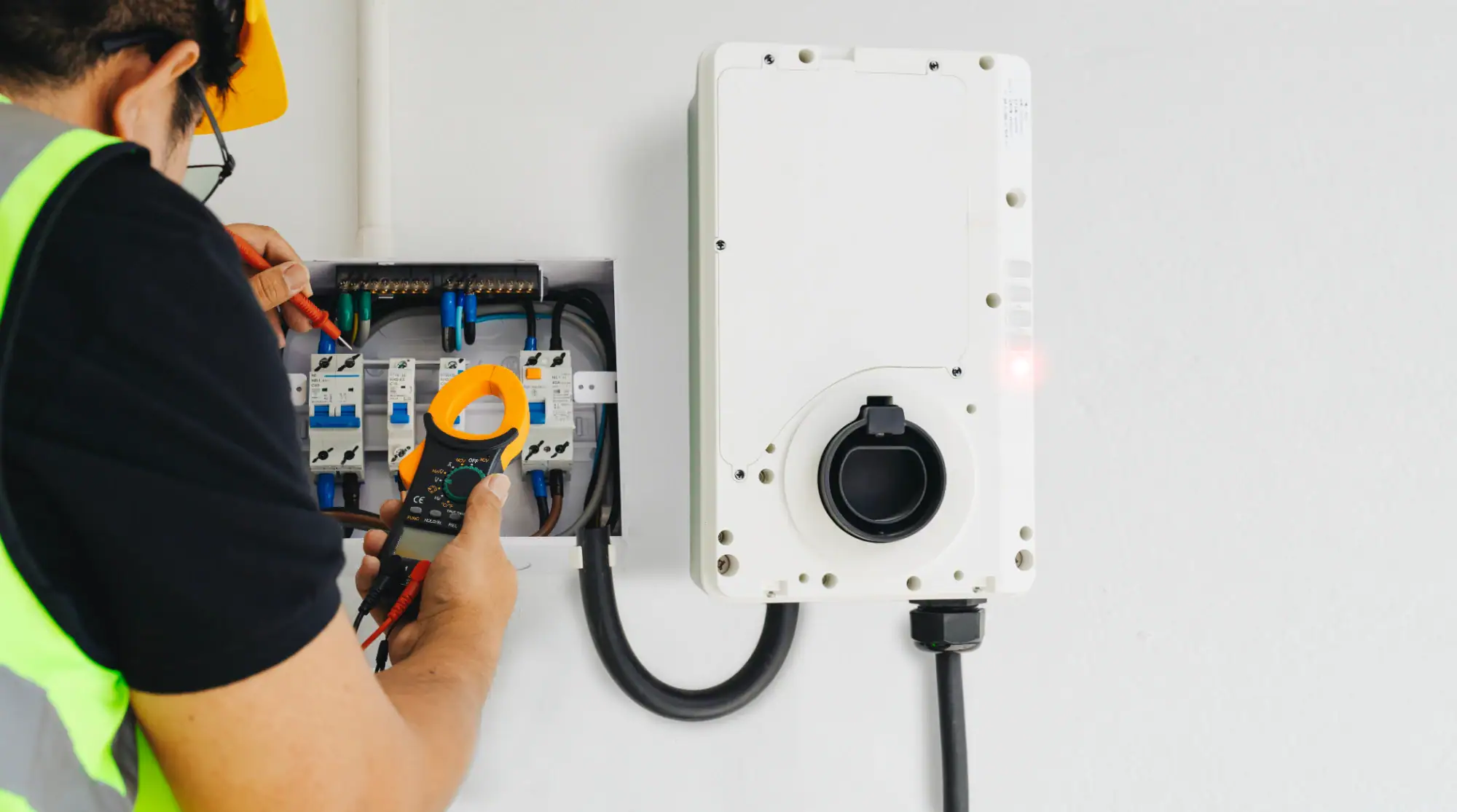
The process starts with evaluating your current electrical panel and determining if you have enough amperage for your EV charger. If your panel needs an upgrade or load management module, we’ll handle that first.
Next comes pulling the required permits. Wheaton and surrounding municipalities require permits for EV charger installations, and the permit includes an inspection to ensure all national and city codes are met. This isn’t optional paperwork – it’s protection for your home and your vehicle.
The installation itself involves running the proper wiring from your panel to your charging location, installing the charger unit, and ensuring everything is properly grounded and protected. After the work is complete, the inspector verifies that everything meets code before you start charging.
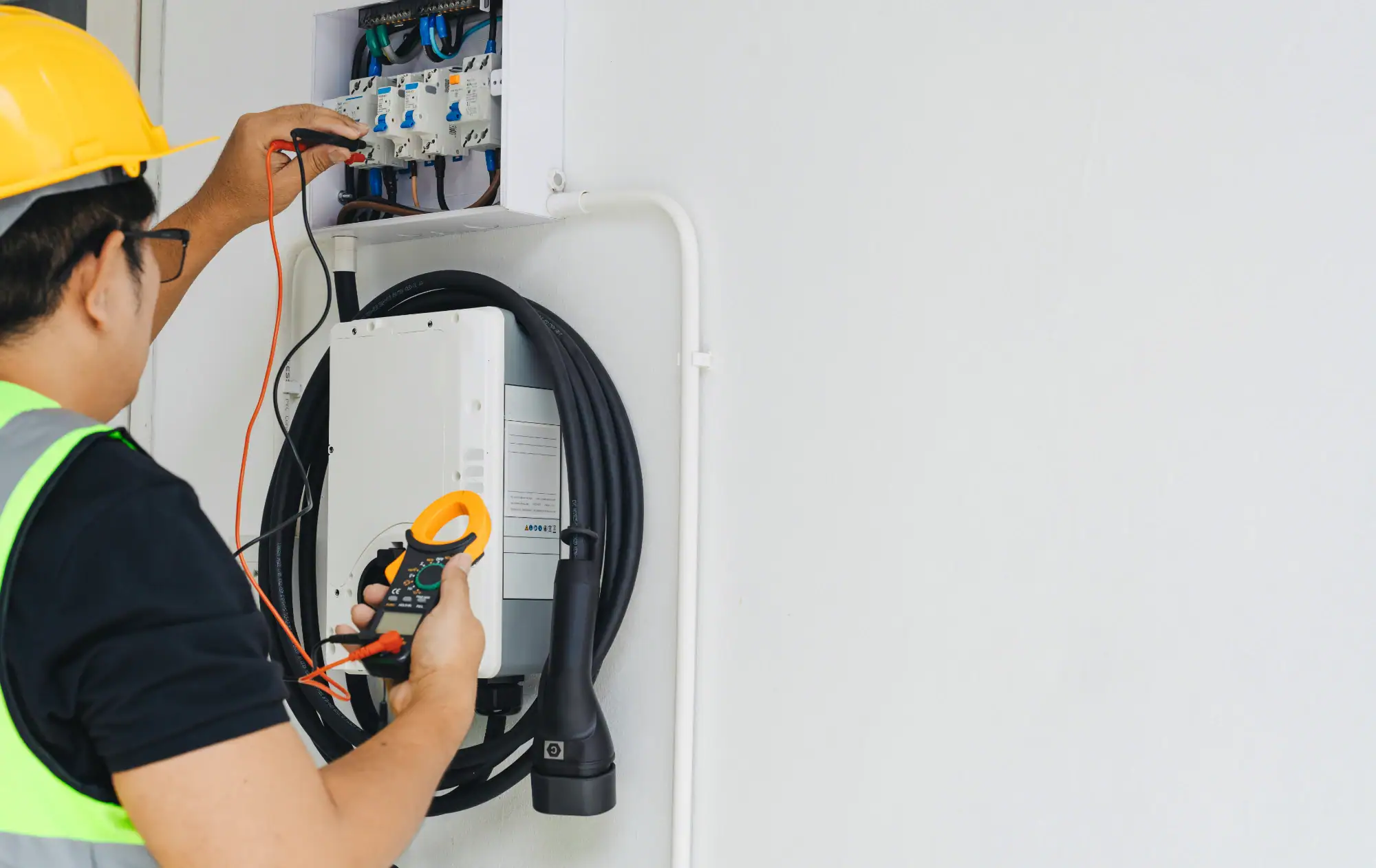
Ready to get started?
Your EV charger installation includes a complete electrical assessment, permit acquisition, code-compliant wiring, proper grounding, and final inspection coordination. We handle the technical details so you don’t have to navigate Illinois Commerce Commission requirements or local building codes.
Wheaton homeowners can take advantage of substantial rebates that make home charging more affordable. Illinois residents can claim rebates ranging from $500 to over $3,000 for Level 2 EV charger installation. Commonwealth Edison customers may qualify for up to $3,750 in rebates, and there’s also a federal tax credit of 30% of installation costs up to $1,000.
The installation is designed to work with your daily routine. Most EV manufacturers recommend overnight charging, which means you’ll plug in when you get home and have a full battery every morning. This eliminates the stress of finding charging stations during your commute and saves money compared to public charging rates.
